Show Don't Tell
The kidlit world is all a tremble today over the news that Albus Dumbledore is gay.
I don't care a whole lot about his sexual orientation in large part because I'm not sure it has anything to do with anything as far as the Harry Potter stories are concerned. Does it support anything that happens in the book? Is it a crucial plot point? Does it reveal anything about Dumbledore or anyone else that must be revealed in order for Harry's story to be told?
But, then, I've always been mystified and put off by the glory that is Dumbledore. The Harry Potter books are children's books. With children's books, it's supposed to be about the kids. Dumbledore has always had way too much power in those books for my taste. (I'm sure I've said that here before.) I've always felt he overshadowed Harry. That may be why adults like him so much. They like feeling there's an adult in there really controlling things just as they like pretending adults control things in the real world.
To me what was interesting about J.K. Rowling's announcement last night that Dumbledore is gay is not that he is gay but that she had to tell us that he is. Does that suggest to anyone else that she didn't show us in the books? I may be wrong because I am not a Potter authority by a long shot, but, except for the last book where we learn about Dumbledore's relationship with Gellert Grindelwald, the friend of his youth who went bad, was there ever any evidence that Dumbledore was either gay or straight? Anything at all? And was that early friendship and the suffering it caused Dumbledore enough to show us that he is gay? No heterosexual has ever had a close same sex friend?
I know that fans enjoy the concept of a universe behind the books in many series, not just Harry Potter. But, nonetheless, we are talking about books, completed worlds, final documents. Whatever we may enjoy believing about our favorite characters, they are what they are in the books. Remember, Dumbledore is not a real person. He can only be what Rowling wanted him to be when she wrote him. If she wanted him to be gay, she had to write him that way, she had to show that he was gay in the books. And certainly if his being gay was all that essential to the books, it had to be shown there.
To tell this information well after the work has been completed may be a great stunt and make for a great headline, but it suggests we're not talking about great writing here.
UPDATE: That last paragraph was way too harsh. To be fair to Rowling, she outed Dumbledore in response to a question from her audience. It wasn't a planned stunt or an attempt to seek headlines. She doesn't need stunts or headlines. I'm also wondering if it isn't overwhelming or even frightening to have such an enormous, uncontrollable fan following that an impromptu remark you make on Friday night becomes major news by Saturday afternoon. Nonetheless, unless she has already written Dumbledore as gay, to say he is now is, in effect, continuing to write books that have already been completed and published. Unfortunately, print on paper is a whole lot like carving in stone.
Labels: Harry Potter
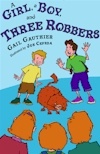
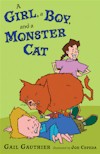
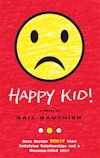
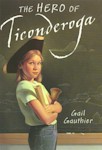
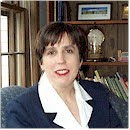



6 Comments:
:)
Oh, you said it so much better than I could. I wanted to SMACK the woman for even going on about Dumbledore. Did we CARE!? I know it was in answer to a question that she was asked, but really -- did it have any bearing on the stories? NO. It seems very much a PR bid, and sort of made me sick.
I think (well, no, I do) disagree that everything has to be in the text in order for it to be true. In a former life, I studied theater seriously. One of the things instructors often say to actors is to think about what came just before the scene (play, action). Actors are often encouraged to develop a life story for their characters. Of course you use things from the text to do these things. But your imagination and knowledge of people come into play as well. It helps to ground a character if you think about why s/he might react in a certain way. In the moment, it's the reaction that's important and is what is seen/read. But the why of it might not be as integral to the plot as it is to character development, so it's known, but not shown. You would obviously know more than I about this, but I find it quite believable that many authors know more about their characters than they ever put into print. Some events shape us, and even if they happened in the past and aren't spoken of, they still affect the way we react to things happening now. J.K. has said she has whole notebooks about her characters. She didn't need to put all she knew about those characters into the books, she just needed to use what was in them as a guide her as she wrote. I suspect this is particularly true when you're dealing with characters over a multi-book/play arc.
Personally, I couldn't care less, except perhaps that it gives the Religious right another reason to hate the series. It's a pity that a lack of sexual background, even (or especially) in a young adult series should mark a character as gay, as if sex is an integral part of fiction. I enjoyed Dumbledore's character immensely (I found him no more intrusive into the plot than Merriman in the Dark is Rising) and this revelation neither diminishes nor elevates him for me. I don't think Rowling was necessarily pulling a PR stunt, but I suspect the reactions of ecstasy or dismay says more about the readers than the book.
Matt
I did think of the way actors create back story as part of their preparation in relation to this incident. Now I don't know a great deal about theater/acting, but isn't the whole point of doing that to shape what the actor does on stage/screen? Won't two actors playing the same part who have created different back stories give slightly different performances even though the audience is unaware of the why? So that something is shown to that extent?
I think the difference here is that with acting, the final product isn't the text, it's the play/production as it appears on stage or screen. Am I correct? While with a book, the final product is the text.
Unless, of course, you wanted to say, no, the final product is the reading experience for readers, what goes on in readers' minds. I have no problem, by the way, with readers reading a character as gay whether or not a writer truly wrote him that way. It's the readers' experience. They should be able to enjoy books however they enjoy them.
"I suspect the reactions of ecstasy or dismay says more about the readers than the book."
I think the fan world that has grown up around all the Potter books is incredibly fascinating.
I am so happy to get some 9Dragons gold from my friends. They know I need 9 Dragons gold, they give me. So I always can get some 9Dragons money from my friends. I buy 9 Dragons gold with my spare money. It makes me happy that I can still earn some cheap 9Dragons gold.
Post a Comment
<< Home